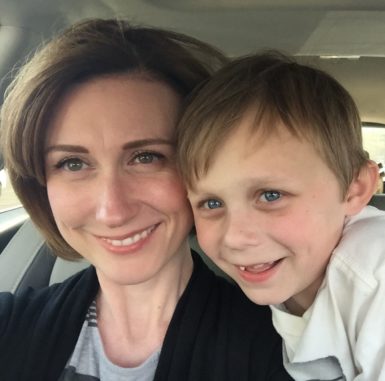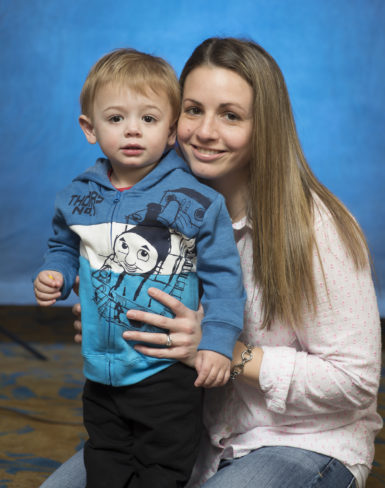There is nothing comparable to a mother’s love. It’s selfless, always giving and comforting. But for three local mothers, Julia Moeller, of Lafayette Hills, Jen Lambert, of Lawrenceville, NJ, and Christie Voelker, from Norristown, PA, their generosity was put to the ultimate test when each of them received the news their child was diagnosed with biliary atresia and would need a life-saving organ transplant.
Biliary atresia is a rare disease of the liver and bile ducts that occurs in infants.
Julie and Jade Moeller

Jade’s father, Tim, wasn’t a match. “After two C-sections and going through so much watching Jade be sick, the thought of another surgery was the last thing I wanted to have. But there was no choice. I just wanted her to be okay,” said Julia. “I was tested and I was a match. Going into surgery, I wasn’t even scared. I knew this was what I had to do.”
Within 48 hours after the surgery, the yellow tint of Jade’s skin and eyes was gone. She had some complications after her surgery – there was gastrointestinal bleeding and one side of her diaphragm was paralyzed – but her health was improving and she was getting stronger every day.
Still being fed through a tube and on a breathing machine, Jade was able to go home after months in the hospital. Today, it’s quite clear that she is a resilient little girl. She is off of all machines, has caught up to all physical and mental milestones for her age and brings joy to her mother, father, brother Zachary and just about everyone she meets.
Jade is a fighter and just turned 15 months. She’s alive today because of her mother’s love. “She is the most amazing little girl,” said Julia. “I don’t feel like I did something special. Helping her was something that I had to do. She’s my baby and it’s what a mom does.”
Jen Lambert and Liam Barnosky

Things began to move quickly. After Liam was diagnosed, doctor’s decided to try to do a reparative surgery that they believed would prolong his life. It was only a temporary fix though. The first surgery did help him for several years, but he became ill again and was listed for a liver transplant at 3 and a half years old. Liam had developed cirrhosis and had a chronic infection. He was in desperate need of a life-saving liver transplant and couldn’t wait. The family learned about the organ transplant waitlist, and realized how scary the waiting would be. Would he be able to receive a new liver? Would that call ever come through? They couldn’t sit back and watch Liam’s health fade away before their eyes, while he waited for a second chance at life.
After several months and extensive testing, it was determined that Jen was a match and she prepared for surgery. Liam had a liver transplant on June 20, 2012 and the surgery was successful! Within a week, Jen was up and walking around post-op and out of the hospital. Liam was doing great, and has continued to do so for the past few years.
Now at almost seven years old, Liam is an active boy. He plays soccer and tennis and loves them both. Today, he has no restrictions and is a normal healthy boy. Jen said, “We try to talk everyone we can about Liam’s experience to highlight the importance of organ donation. When they see Liam – happy and healthy – I think it helps them understand the significance of it.”
Christie and Alex Voelker

Christie’s husband didn’t have the same blood type as their son, so Christie decided to get tested too. She was a match and prepared for surgery. The transplant was a success, but Alex suffered a stroke during the surgery. As he healed, the Voelker family was unclear if he would have cognitive delays and if he would fully come around.
Today, Alex’s recovery has impressed everyone who knows him. He’s gained weight and has grown a lot post-transplant. “People are shocked when they see him. He’s smart and outgoing and you would never know what he went through,” said his mother Christie. “He’s just doing amazing. He has friends and can play like everyone else now. He is such a fighter – even as a baby, he was not going to give up,” she said.
Christie has also found a supportive community through creating a Facebook page for Alex called Team Alex. “It’s been amazing to connect with other people who have gone through this. I can share pictures of Alex and show how successful his transplant was,” Christie said. “People are inspired by his story. I tell people about it and they get emotional. It makes them realize the importance of organ donation.”
